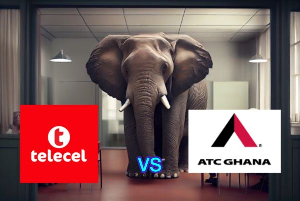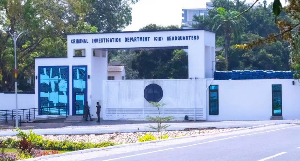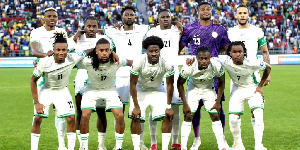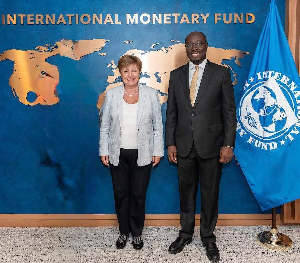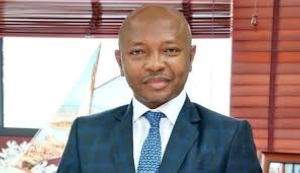Recently, Ghana’s leading independent telecoms tower company, ATC Ghana, disconnected Telecel Ghana equipment on some tower co-location sites. The reason they gave for their action was non-payment of electricity and fuel bills by Telecel, and ATC’s inability to continue footing that bill on behalf of Telecel.
To every story, however, there are at least two sides. So, as was expected, less than an hour after ATC stoke the fire, Telecel sent some hail and brimstone the way of ATC describing their allegation as “utterly false”. In fact, they even issued a subtle legal threat on anyone who goes on the back of ATC’s allegations and does anything that negatively impacts the Telecel brand.
So, as we have always done, Techfocus24 went behind the two statements and dug deeper to find out what exactly led to ATC deciding to target Telecel Ghana for its unplugging move this time round. You would recall that in 2022, ATC selected Surfline and Busy Ghana and unplugged them, even though at the time AirtelTigo (now AT Ghana) and Vodafone Ghana (now Telecel Ghana) owed ATC more money than Surfline and Busy Ghana did. ATC’s explanation then was that there were ongoing negotiations with AirtelTigo and Vodafone at the time, but all avenues had been exhausted with Surfline and Busy Ghana. The two ISPs had a different story to tell, but their stories did not make much difference.
So, it appears ATC picks and chooses who to unplug at what time when it suits them. But to better understand what led to them choosing Telecel this time round, even though AT Ghana owes them more money than Telecel does, we need to go back to the beginning of tower sharing in Ghana.
1. Years ago, when Ghanaians started complaining about telecom towers emitting radioactive radiations into our communities, the National Communications Authority (NCA) decided that, even though there was no scientific basis for those complaints, all telcos should compulsorily opt for tower sharing (co-location), just to allay the fears of Ghanaians. That policy was also strategic, because it meant telcos and ISPs (internet service providers) will no longer have to spend so much money mounting their own towers to provide connectivity. They can mount their antennas on each other towers. The first option for even new entrants is to explore co-location towers before even considering mounting their own towers.
2. Per the NCA-led co-location policy, all the telcos were made to sell a significant amount of their towers to independent tower companies. There were three of them at the time – ATC (American Tower Company) Ghana, Eaton Towers and Helios Towers.
3. ATC Ghana acquired 1,876 MTN towers at a reported $428.3 million, while Eaton Towers took over 750 Vodafone (Telecel) towers initially, and Helios focused mainly on Airtel and Tigo towers.
4. MTN managed to get a lease-back agreement with ATC for the towers they sold to them. In fact, MTN held 49 per cent shares in ATC Ghana for ten years. Airtel and Tigo also did lease-back with Helios. But Vodafone, for some reason, failed to do same with Eaton, probably because the Eaton CEO at the time used to be Head of Strategy at the Vodafone Group so he got away with a very flexible deal. In fact, from what we learnt, Eaton did not even make any upfront payment to Vodafone for the towers. They only committed to paying a monthly token of GHS1,000 for each tower. Some cronyism going on there.
5. The Eaton-Vodafone deal was signed for 10 years. Before the contract could run out, Eaton sold it to ATC Ghana, and ATC continued to pay just a token of GHS1,000 per tower to Vodafone every month, while charging Vodafone and every other tenants (MTN, AT Ghana and several ISPs) at least GHS8,000 for some towers and GHS12,000 per month for other towers, depending on the location of the tower.
6. When the contract term finally run out, ATC decided they will not renew it, so they handed over the towers (630 of them) back to now Telecel. But they continued to host the other tenants on the those towers, collect their GHS12,000 per tower per month rent from each of the tenants, including Telecel, but kept paying Telecel the token of GHS1,000 per tower per month. Very cunning move indeed. ATC knew a renewal would mean the terms will change, so they just handed over the towers and continued to pay the GHS1,000 chicken change to Telecel, while they keep making big money from tenants on those towers.
7. So, Telecel decided that, now that the contract was over and the towers are in their possession, they will also charge ATC GHS12,000 per tower per month, so the fees will even out between them. But for some reason, ATC suddenly woke up to the reality that the GHS12,000 was too high. So, when ATC was charging Telecel GHS12,000 per tower, they did not see it as too high. But now that they have to pay Telecel the same amount, all of a sudden, it is too high. Meanwhile, ATC still kept other tenants on Telecel’s towers and kept charging them the usual monthly fees.
8. According to Telecel, whereas they have paid up their bills to ATC up to June 2024, ATC has refused to pay Telecel the GHS12,000 for one year, so Telecel came up with a payment plan to recover the one year arrears. But ATC thought that plan was not commercially viable.
9. ATC therefore decided they can’t make zero money from Telecel on those towers, and still fuel and power Telecel’s equipment, even though the towers now belong to Telecel. So, ATC increased Telecel’s monthly fees. Where they charge GHS8,000, they increased it to GHS13,000 (62.5%) and where they charge GHS12,000, they increased to GHS19,000 (58.3%). But Telecel outrightly refused to pay, simply because the increases were ridiculous.
10. ATC then decided to show Telecel where power lies by completely cutting power and fuel supply to Telecel’s equipment on some co-location sites, even though ATC continued to host the equipment of other tenants on the 630 sites belonging to Telecel.
11. Well, as we all know, the matter went to NCA and ATC Ghana was directed to immediately restore service to Telecel and to also issue another statement retracting their earlier “utterly false” allegation against Telecel.
We all know that now, ATC Ghana has eaten half of the humble pie and reconnected Telecel. But they are still yet to retract their “utterly false” allegation against Telecel. They issued a statement announcing the restoration of service to Telecel, and rather re-enforced their allegation that Telecel had failed to meet their contractual obligations for a long time now.
Techfocus24 reached out to ATC in writing to respond to the issues raised by Telecel. They only provided verbal responses, but have refused to share a written response. In essence, here is what they said verbally:
1. That when Telecel informed them that they were also going to charge GHS12,000 per month for each of the 630 towers, they started to engage Telecel in negotiations on that. While the negotiations were still ongoing, Telecel unilaterally issued a payment plan to collect their one year arrears, which is a sign of bad faith.
2. That the monthly fees is different from fuel and power bills, so they expected Telecel to still pay for the fuel and power bills, while negotiations were still ongoing on the fees.
Convenient Responses
ATC’s verbal responses sounded very convenient. It appears they intentionally threw in the ridiculous 62% and 58% fee increases just to engross Telecel in long negotiations to delay the payment to Telecel for one whole year. Meanwhile, they (ATC) kept charging Telecel for hosting them on other towers, and also kept charging other operators on the 630 towers belonging to Telecel. So, while the so-called negotiations were ongoing, ATC kept making money from Telecel’s 630 towers, but they failed to pay the GHS12,000 Telecel quoted. Is that what we call bullying?!
Well, Telecel has stated categorically that the claim by ATC that they (Telecel) breached their contractual obligation was utterly false. We wrote officially to ATC to provide evidence to support their claim that indeed Telecel breached their contractual obligations, but ATC has elected not to provide that evidence. According to them, they have provided the evidence to the NCA. But as far as the public is concerned, their claim has not been substantiated with evidence.
While we still wait for ATC Ghana to do the needful, it is important to note that apart from MTN Ghana, the bed mate of ATC Ghana, almost every operator in the telecoms and ISP space owed ATC Ghana for a very long time. In fact, ATC was accused of being extremely profit-oriented, more than seeking to support the local industry, as the independent towercos were set up to do. Per their own annual report in a particular year, they stated that in Africa, they expect to make between 13% and 32% return on investment. They even reported that apart from the cost they incurred in hosting the anchor tenant on any site, all additional tenants came at very minimal cost to them, so all the money they made from the additional tenants was just extra cash they can easily extract from the Ghanaian economy to USA.
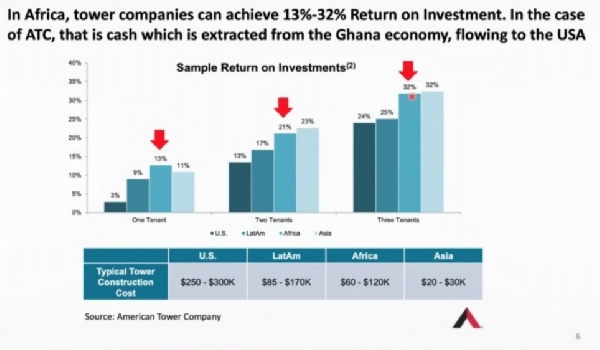
This means ATC can afford to lower cost for smaller operators and non-anchor tenants, and support them to stay afloat, instead of leaving them to suffocate under huge legacy and recurrent debts, while they kept supporting their bed mate to grow. Under the watch of ATC, all the locally-owned ISPs and even non-SMP telcos are either completely dead or are on life support, largely because they simply could not/cannot afford ATC’s high tower fees.
Indeed, the last time we checked, AT Ghana owed ATC over GHS200 million in legacy debt. Their recurrent debt is not even known. Per our checks, a greater part of that debt came from over 400 towers that AT Ghana has not even used for many years now. But the fact that their equipment remained on those sites, ATC continued to bill them like everyone else.
Ethical issues
There is a deep ethical issue in this whole arrangement, where ATC Ghana, a beneficiary of NCA’s co-location policy, has been allowed, without proper regulatory supervision, to maintain a passive posture, where, even if a particular operator is not making any revenue from a particular tower in a particular area, so long as their equipment are on that tower site, ATC gets paid full rent.
The other unethical issue is that for 10 years, between 2010 and 2020, MTN Ghana owned 49 per cent shares in ATC Ghana, and quite a number of MTN Ghana’s technical staff crossed over and joined ATC Ghana as part of that arrangement. So, clearly ATC Ghana was is bed with MTN Ghana. Why the regulator even allowed that kind of arrangement to go unchecked is baffling to one’s mind. Today, the regulator has named MTN Ghana a significant market power (SMP), forgetting that ATC Ghana played a pivotal role in getting MTN to that status.
We at Techfocus24 still maintain that ATC is a de facto significant market power (SMP) in the towerco space, and it is high time they are named and treated as such. If the regulator does not step in to properly supervise how they conduct their business and how that impacts operators, their conduct will soon collapse every operator and we will be left with only one, MTN Ghana. Indeed, this ATC-Telecel incident is another confirmation of earlier expert opinion that the actual SMP maker in Ghana’s telecoms sector is ATC Ghana.
Connectivity is critical to growth and market penetration for any telco. On the basis of solely, financial consideration, ATC continues to give MTN all the support in terms of connectivity, while allegedly shortchanging the smaller players in various ways, as reported by some telco and even ATC staff during a study years ago. Indeed, the fact that they elected not to renew the contract with Telecel for the 630 towers speaks volumes about where their loyalty lies.
Stricter Regulation
What ATC did to Telecel was very consistent with their conduct over the years, which NCA had kept a blind eye on. If NCA had played its regulatory role in that space properly, we should not have come to the point where ATC could unplug an important player like Telecel before NCA steps in and plays macho. By law, no industry player has the right to unplug another without approval from the NCA. So, it is mind boggling to find NCA acting as if this whole thing happened on their blind side. If indeed, that was what happened, then ATC broke the law, and NCA knows exactly what to do.
I think it is time for the NCA to be a better regulator of the towerco space. This is why the Dispute Resolution Committee (DRC), soon to go active at the NCA, will be a very apt forum for issues like this to be addressed before they escalate to the levels where innocent consumers suffer needlessly.
Between ATC and Telecel, someone has to be sanctioned severely for the impact this whole fiasco has had on consumers. I think we can all tell who that the bully is.
And that is the elephant in the room on this matter.
Opinions of Monday, 15 July 2024
Columnist: tech24

